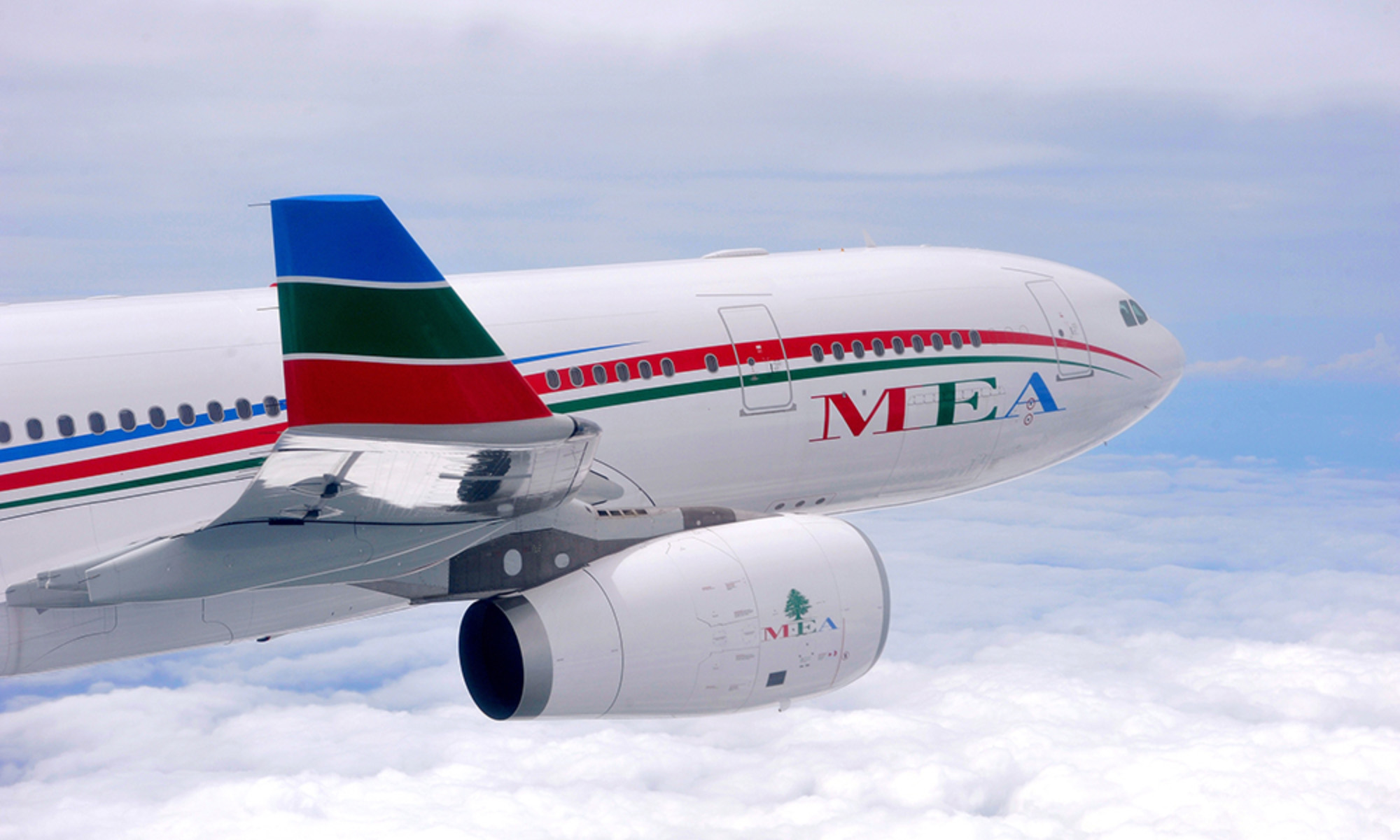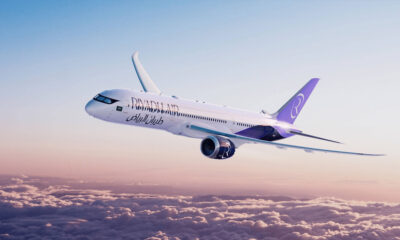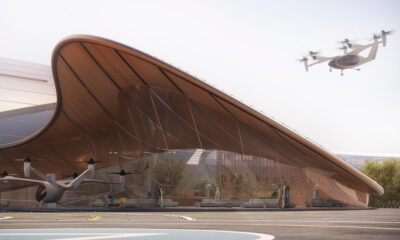News
Greek F-16 Fighter Jets Intercept Beirut-Bound MEA Flight
The Lebanese pilot is thought to have used an incorrect radio frequency — a major blunder from the son of the airline’s chairman.

A “Code Renegade” alert recently set Greek aviation authorities on high alert following a warning issued by a NATO air control center in Torrejón, Spain. Code Renegade is a distress signal typically used in a hijacking situation. In this case, the code was issued after a Middle Eastern Airlines (MEA) flight bound for Beirut failed to answer calls and went into complete radio silence.
After repeated attempts to speak to the aircraft’s captain, authorities began to worry about the plane’s safety status, which eventually caused Greek air defense to scramble two F-16 fighter jets from Souda to intercept the unresponsive civilian airliner over Argolida in the northeastern Peloponnese.

Lebanon-based aircraft tracker InterSky, took to Twitter to report the details of the unfolding situation:
“Code Renegade set Greek authorities on alert following a relevant signal by the NATO air control center in Spain (CAOC Torrejón), to intercept a non-responsive civil aircraft Airbus A321 with 145 passengers onboard that had taken off from Madrid and was bound for Beirut.”
Also Read: Emirates Airline To Invest $2 Billion On Major Upgrades
In a further twist to the story, contact was eventually reestablished with the aircraft, after which it was revealed that the MEA pilot, Abed Al-Hout, was the son of Mohammed Al-Hout, chairman of the board of directors of Middle East Airlines. The chairman has previously received criticism for employing relatives at various levels of the company, and in this instance, his son had failed to set the communication instruments to the correct frequency, resulting in radio silence.
The news is a further embarrassing blow for Middle East Airlines, which has recently lost over 20% of staff to other airlines, as Lebanon’s financial crisis continues to deepen.
News
Alienware Just Announced Six New Gaming Monitors
The new models include three QD-OLED and three budget-friendly QHD options, expanding the company’s lineup for all gamers.

Alienware has just updated its gaming monitor lineup with six new additions, including the highly anticipated Alienware 27 4K QD-OLED Monitor. The latest wave of releases is set to reach more gamers than ever, offering high-end QD-OLED displays alongside more budget-friendly options.
The latest displays clearly show that the company is doubling down on QD-OLED with three new models sporting the technology. A redesigned Alienware 34 Ultra-Wide QD-OLED Monitor is also making a return, further refining what is already a fan-favorite display.
A Unified Design: The AW30 Aesthetic
All six monitors feature Alienware’s new AW30 design language, first introduced at CES. The AW30 aesthetic brings a futuristic, minimalist look that unites the entire lineup under a cohesive visual identity.
Pushing QD-OLED Even Further
The refreshed Alienware 34 Ultra-Wide QD-OLED Monitor (AW3425DW) builds on its predecessor’s success with a 240Hz refresh rate (up from 175Hz) and HDMI 2.1 FRL support. It also gains G-SYNC Compatible certification alongside AMD FreeSync Premium Pro and VESA AdaptiveSync, ensuring ultra-smooth performance. With a WQHD (3440×1440) resolution and an 1800R curve, this display enhances immersion for both gaming and cinematic experiences.
For those who crave speed, the Alienware 27 280Hz QD-OLED Monitor (AW2725D) pairs a high refresh rate with QHD resolution, balancing sharp visuals with ultra-smooth gameplay. Meanwhile, the Alienware 27 4K QD-OLED Monitor (AW2725Q) delivers stunning clarity with an industry-leading pixel density of 166 PPI, making it the sharpest OLED or QD-OLED monitor available.
Also Read: Infinite Reality Acquires Napster In $207 Million Deal
Worried about OLED burn-in? Alienware’s entire QD-OLED lineup comes with a three-year limited warranty covering burn-in concerns, offering peace of mind for gamers investing in these high-end displays.
Bringing QHD To A Wider Audience
Alongside QD-OLED, Alienware is also releasing three new QHD gaming monitors aimed at more price-conscious gamers. The Alienware 34 Gaming Monitor (AW3425DWM), Alienware 32 Gaming Monitor (AW3225DM), and Alienware 27 Gaming Monitor (AW2725DM) provide a range of sizes and formats to suit different preferences:
- The Alienware 34 Gaming Monitor (AW3425DWM): An ultrawide (WQHD) option for a panoramic, immersive experience.
- The Alienware 32 Gaming Monitor (AW3225DM): A standard 16:9 panel for a traditional but expansive desktop setup.
- The Alienware 27 Gaming Monitor (AW2725DM): A 27” display offering the same performance in a more compact form factor.
All three gaming monitors feature a fast 180 Hz refresh rate, a 1ms gray-to-gray response time, and support for NVIDIA G-SYNC, AMD FreeSync, and VESA AdaptiveSync to eliminate screen tearing. Additionally, with 95% DCI-P3 color coverage and VESA DisplayHDR400 certification, these displays deliver vibrant colors and high dynamic range for lifelike visuals.

























